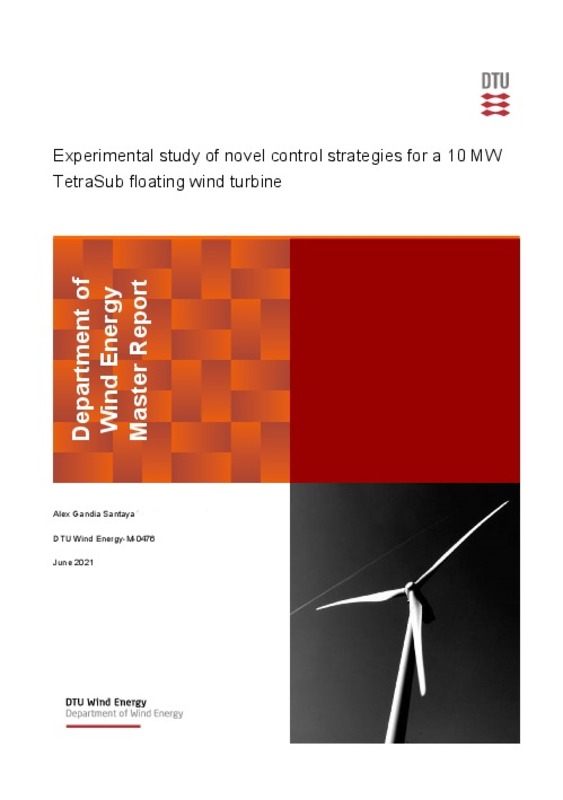JavaScript is disabled for your browser. Some features of this site may not work without it.
Buscar en RiuNet
Listar
Mi cuenta
Estadísticas
Ayuda RiuNet
Admin. UPV
Estudio experimental de nuevas estrategias de control de una turbina flotante 10 MW TetraSub a pequeña escala
Mostrar el registro sencillo del ítem
Ficheros en el ítem
| dc.contributor.advisor | Gallardo Bermell, Sergio
|
es_ES |
| dc.contributor.author | Gandía Santaya, Álex
|
es_ES |
| dc.date.accessioned | 2021-09-13T14:45:36Z | |
| dc.date.available | 2021-09-13T14:45:36Z | |
| dc.date.created | 2021-07-13 | |
| dc.date.issued | 2021-09-13 | es_ES |
| dc.identifier.uri | http://hdl.handle.net/10251/172267 | |
| dc.description.abstract | [ES] Como parte del proyecto de investigación FloatStep research project, una campaña experimental en la que nuevas estrategias de control sobre una turbina flotante a pequeña escala ha sido planificada para llevarse a cabo en la primavera de 2021. Un flotador TetraSub conectado a un modelo 1:60 de la turbina de referencia de la DTU será probado en las instalaciones de DHI. El propósito del estudio es investigar y probar nuevas estrategias de control para evitar el conocido como ¿pitch instability¿ del flotador, que ocurre cuando estrategias de convencionales de controles se aplican directamente sobre turbinas flotantes. Este Trabajo de Fin de Máster incluirá la preparación, la planificación y la ejecución diaria de los tests, así como el posterior análisis de datos y posibles resimulaciones numéricas de los experimentos en el software HAWC2. | es_ES |
| dc.description.abstract | [EN] Project scope: As part of the FloatStep research project, a test campaign for the Spring 2021 is being planned, where novel control strategies for the TetraSub floater prototype will be investigated. A lab scale model of the TetraSub floater connected to a 1:60 model of the DTU 10 MW reference wind turbine will be tested at the test facilities of DHI. The purpose of the study is to investigate and test novel control strategies to avoid the well-known floater pitch instability, experienced when applying conventional control strategies to floating wind turbines. This Master¿s thesis will include the preparation, planning and daily execution of the tests, as well as the data analysis and possible numerical re-simulation of the experiments in HAWC2. The project has been planned as follows: Phase I: Numerical pre-simulation: 1. Literature review of different control strategies for floating wind turbines. 2. Getting familiarized with the existing HAWC2 model of a previous version of the TetraSpar design concept and running simulations with the Basic DTU Wind Energy Controller. Different wind and wave climates will be simulated and the results compared to existing experimental data, in order to gain experience into the HAWC2 environment, model validation and analysis of measurements. 3. Updating the controller DLL with the new control strategy into the numerical model and running simulations under different environmental conditions (ECs) to check its performance. Based on the controller performance, a few design iterations of the provided controller are expected. 4. Getting familiarized with the updated TetraSub floater design concept and the new mooring system in HAWC2, and running simulations to test the model. Phase II: Lab-scale experiments: 5. Carrying out lab experiments with the new TetraSub floater model at DHI. The first step will be setting up the lab environment and validating the wind and wave conditions. Afterwards, the response of the TetraSub floater model to different ECs with the standard and the new controller will be measured. ECs include regular waves, irregular waves and focused waves, both with and without wind. The experimental phase is expected to last 8 weeks. Phase III: Data analysis and remodelling: 6. Analysis of the measured data and comparing the performances with the different controllers. The result of the analysis will be an evaluation of the new controller strategy and an overview of possible ways to improve its performance. 7. If time allows, the experiments will be remodelled in HAWC2. Here the focus will be on the system response to combined wind-wave cases, and possible recalibration of the model parameters. | es_ES |
| dc.format.extent | 182 | es_ES |
| dc.language | Inglés | es_ES |
| dc.publisher | Universitat Politècnica de València | es_ES |
| dc.rights | Reserva de todos los derechos | es_ES |
| dc.subject | Turbina eólica flotante | es_ES |
| dc.subject | Energía eólica | es_ES |
| dc.subject | Control de turbinas | es_ES |
| dc.subject | Modelado matemático. | es_ES |
| dc.subject | Floating | es_ES |
| dc.subject | Offshore wind energy | es_ES |
| dc.subject | Control & Loads | es_ES |
| dc.subject | Mathematical modelling | es_ES |
| dc.subject.classification | INGENIERIA NUCLEAR | es_ES |
| dc.subject.other | Máster Universitario en Ingeniería Industrial-Màster Universitari en Enginyeria Industrial | es_ES |
| dc.title | Estudio experimental de nuevas estrategias de control de una turbina flotante 10 MW TetraSub a pequeña escala | es_ES |
| dc.type | Tesis de máster | es_ES |
| dc.rights.accessRights | Abierto | es_ES |
| dc.contributor.affiliation | Universitat Politècnica de València. Departamento de Ingeniería Química y Nuclear - Departament d'Enginyeria Química i Nuclear | es_ES |
| dc.contributor.affiliation | Universitat Politècnica de València. Escuela Técnica Superior de Ingenieros Industriales - Escola Tècnica Superior d'Enginyers Industrials | es_ES |
| dc.description.bibliographicCitation | Gandía Santaya, Á. (2021). Estudio experimental de nuevas estrategias de control de una turbina flotante 10 MW TetraSub a pequeña escala. Universitat Politècnica de València. http://hdl.handle.net/10251/172267 | es_ES |
| dc.description.accrualMethod | TFGM | es_ES |
| dc.relation.pasarela | TFGM\142757 | es_ES |
Este ítem aparece en la(s) siguiente(s) colección(ones)
-
ETSII - Trabajos académicos [9930]
Escuela Técnica Superior de Ingenieros Industriales






